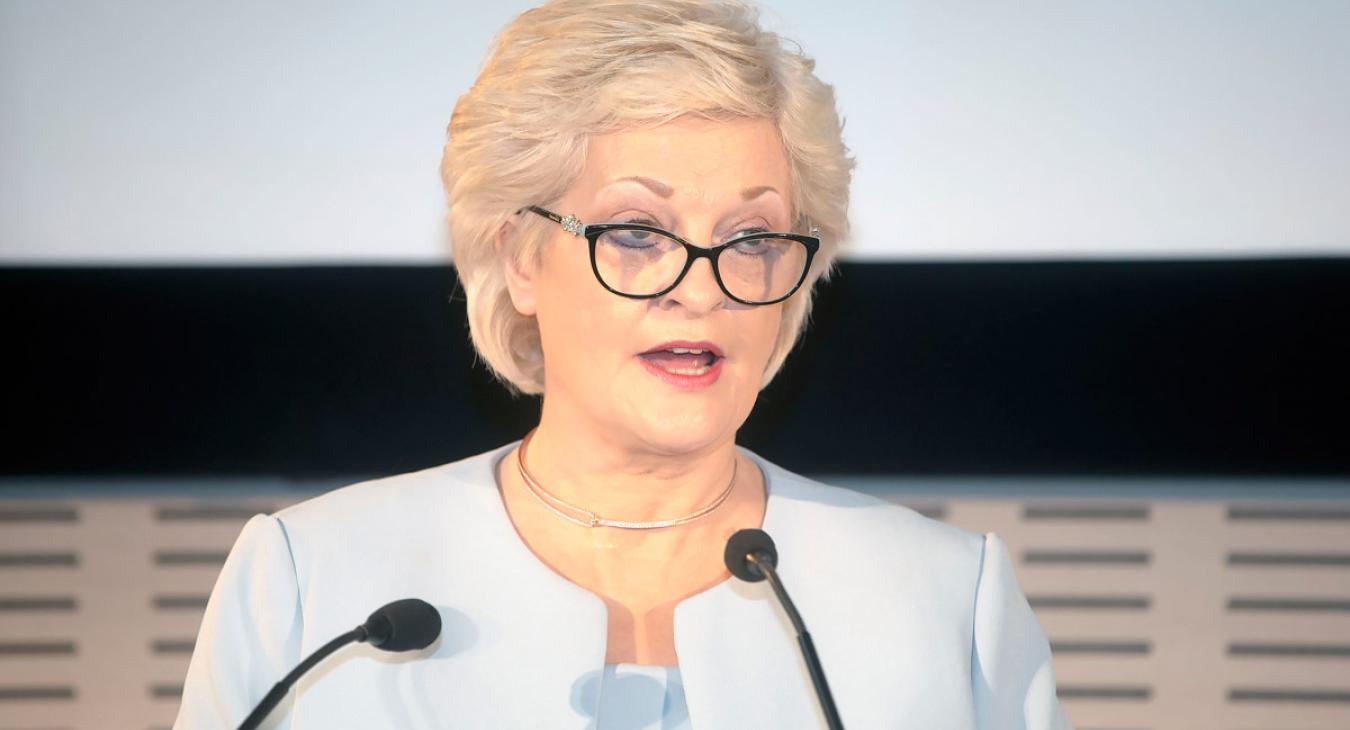To watch the Oireachtas Joint Committee on Climate Action on 20 November 2019, click on the link below.
https://www.oireachtas.ie/en/oireachtas-tv/video-archive/committees/ (Congress presentation starts at 29.56)
Oireachtas Joint Committee on Climate Action: November 20, 2019
Opening Statement from Patricia King, General Secretary, Irish Congress of Trade Unions
I want to thank the Committee for the opportunity to address you here today on an issue that is crucial to the future of so many communities across this country.
Congress welcomes the national conversation that is now taking place on Climate Action and the transition to a low carbon economy and we acknowledge the Government's recently-published Climate Action Plan (CAP).
However, given that trade union and environmental groups globally have been discussing the carbon transition for some years and campaigning on the concept of Just Transition for at least two decades, it is a source of deep concern that the debate in this country has only just begun. It should have started many years ago.
At the very least, the government should have taken the lead on this immediately on signing the Paris Agreement in 2016 - an agreement that binds us to specific targets and obliges us to implement a Just Transition.
Instead, it appears that official policy constantly struggles to keep pace with events and that jobs are threatened or lost before any support is put in place. Inevitably this leads to fear, uncertainty and distrust among the workers and their communities.
The current situation in Bord na Mona (BnM) and the ESB is a major test for policymakers.
Bord na Mona was established with a regional employment mandate and has supported decent employment across the Midlands over many decades.
The phasing out of peat production also has implications for the ESB and the decision to close peat-fired stations by December 2020 has added to the fear and uncertainty for workers in the region. The prospect of a planned, orderly wind-down is now seriously diminished and the Midlands is threatened by further economic decline.
A coherent Just Transition framework would address the real fears of workers and their communities on the impact of the shift to greener energy production. In the case of BnM this would entail programmes to ensure workers could redeploy or reskill for new green jobs. But these programmes are not yet in place.
In Budget 2020 the government announced some €31 million for retraining initiatives, a retrofit programme (some of which might be "old money") and initiatives on bog restoration, all of which may deliver up to 500 jobs. But there is no certainty on this.
For example, we have no clarity over plans to repurpose the PSO levy to support job creation. Equally, it is our understanding that the Platform for Coal provides technical, but not financial support while the carbon transition does not currently fall within the remit of the EU's Globalisation Fund.
The shift to a low carbon economy offers significant opportunities for new and decent job creation: in renewable energy generation, deep retrofitting, new infrastructure to reduce energy consumption and better public transport.
But the state must take the lead and must commit appropriate investment. The market cannot deliver on the scale that is required.
The Midlands already suffers relatively high levels of unemployment, while inward investment is among the lowest of all regions. More job losses and depressed local demand are unlikely to spark a sudden influx of new, private capital.
There are many examples of carbon transitions we can learn from: in Germany, Australia, Canada, Spain, South Wales or Appalachia. Successful transitions are characterised by planning, by inclusive social dialogue, the involvement of all stakeholders and by state-led investment.
In Spain, government, unions and employers reached a deal in 2018 that will see the orderly wind-down of the coal industry over the next decade and investment of some €250 million in the affected regions.
That deal could serve as a useful template for policy here.
Those transitions which have manifestly failed - South Wales, Appalachia - relied on the market to deliver. The result was social chaos and economic dislocation that is still evident today.
Any transition must ensure the participation of affected workers and communities. This includes social dialogue with all key actors.
For this reason, it is highly regrettable that BnM management has consistently refused to utilise the good offices of the WRC to engage in a forum with workers, whereby all relevant issues can be discussed and resolved.
It is equally unfortunate that the government while appointing a Just Transition Commissioner, has explicitly ruled out his having any role in matters pertaining to workers.
It is important to understand that workers and communities across the energy generation sector are being asked to sacrifice their livelihoods for the greater good of future generations.
That creates a moral and social imperative for policy makers to ensure they do not become the collateral damage of decisions taken at a distant remove.
Bord na Mona and the Midlands will serve as a litmus test for Ireland's transition to a low carbon economy. If workers and their communities are abandoned to the market then support for the process will evaporate and opposition will grow.
The incoming European Commission has advocated a "European Green Deal" similar to the Green New Deal advocated by unions and others.
Congress believes Ireland should embrace this new initiative and devise a comprehensive and coherent strategy to ensure no one is left behind on the road to climate neutrality.
In attendance for Congress
Patricia King, General Secretary, Congress
David Joyce, Congress
Macdara Doyle, Congress
Paul Goldrick-Kelly, Nevin Economic Research Institute
Willie Noone, Bord na Mona Group of Unions
Jimmy Nolan, ESB Group of Unions
Jim Dullaghan, UNITE
Karen Halpenny, Energy Services Union
For further information contact : Conor Kavanagh, Congress Communications Office on 086 8116607
ENDS

